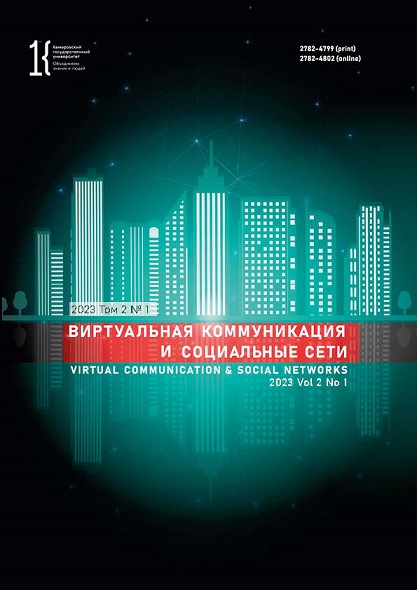Kemerovo, Russian Federation
Kemerovo, Russian Federation
The article deals with RuNet advertising of foreign language training from the point of linguistic culture and communication theory. Online advertising is a nationally-specific semiotic phenomenon. Language training ads can be analyzed both as a form of dialog communication and as a fragment of the national worldview. The analysis of foreign language schools’ sites revealed the organization principles behind their communicative environment, cognitive semantics, and culturally valuable content. The article introduces the mechanism of verbal and non-verbal coding that provides communication efficiency in these linguacultural conditions.
advertisement, foreign language learning, linguistic culture, internet communication, site, communicative space, dialogue, values, world-modeling
1. Bernadskaya Yu. S. Text in advertising. Moscow: UNITADANA, 2008, 288. (In Russ.)
2. Galichkina E. N. Computer communication: linguistic status, symbolic means, and genre space: Dr. Philol. Sci. Diss. Abstr. Volgograd, 2012, 40. (In Russ.)
3. Gorina E. V. Cognitive interaction as a constituent feature of Internet discourse. Proceedings of the Ural State University. Ser. 1. Problems of Education, Science and Culture, 2010, (1): 58-66. (In Russ.)
4. Dialogical linguistics, eds. N. N. Shpilnaya, M. V. Voronets, N. I. Tyukaeva. Barnaul: AltGPU, 2019, 320. (In Russ.)
5. Dyakova E. Y. Polycode text in the British advertising discourse of education. Cand. Philol. Sci. Diss. Abstr. Voronezh, 2011, 26. (In Russ.)
6. Koenig T. Advertising and poster as propaganda tools. Leningrad: Vremya, 1925, 285. (In Russ.)
7. Kolomiets V. P. Television advertising as a means of constructing meanings. Moscow: Mir Rossii, 1997, 29-54. (In Russ.)
8. Basic theory of communication, ed. Vasilik M. A. Moscow: Gardariki, 2003, 615. (In Russ.)
9. Sonin A. G. Experimental study of polycode texts: main directions. Issues of linguistics, 2005, (6): 115-123. (In Russ.)















